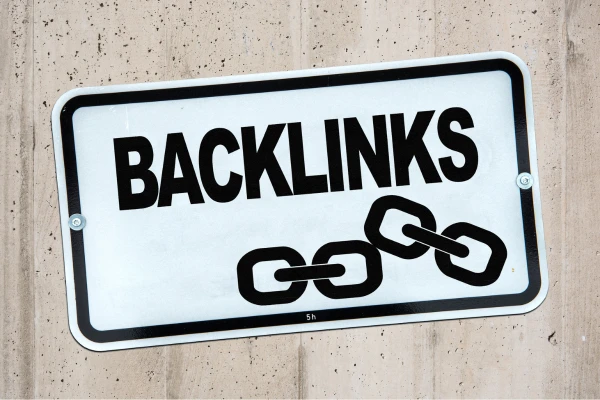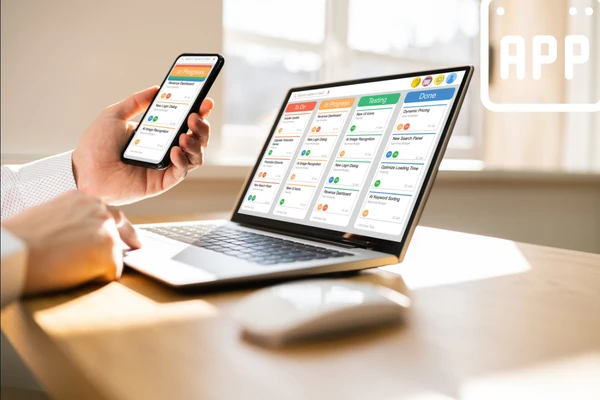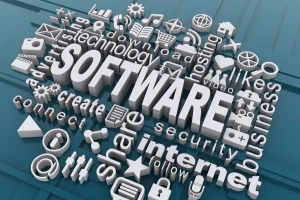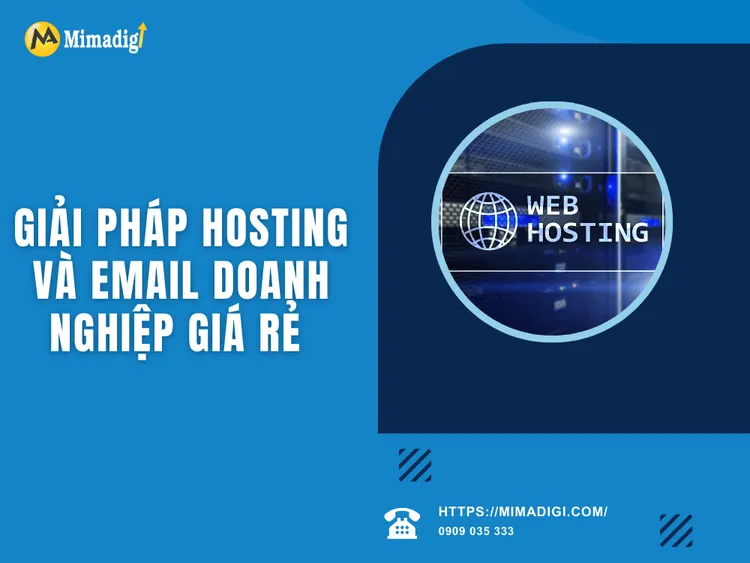What is a Business Email, and Why Should You Care?
In the digital age, a business email is no longer a "premium" option but a fundamental need for every organization. Unlike free emails like @gmail.com or @yahoo.com, a business email uses the company's own domain name, such as ten@tencongty.com. This offers superior benefits in terms of brand image, security, and operational efficiency.
Business Email – Small Interface, Big Value in the Eyes of Partners
An email address with a custom domain format is not just a tool, but also a "digital brand face." When customers receive emails from addresses like info@congtyabc.com, they immediately perceive a well-invested, professional, and more reliable organization compared to addresses like abccompany@gmail.com.
In a highly competitive environment, first impressions can determine partnership opportunities. A professional email can make a big difference in the eyes of investors, potential customers, or international partners. Additionally, consistency in email format helps increase brand recall, thereby enhancing effectiveness in both communication and sales.
Why Register a Business Email?
- Demonstrates professionalism, increasing credibility with customers.
- Easily delegate permissions by department or individual.
- Effectively control internal data.
- Reduce spam, increasing the likelihood of emails landing in the inbox.
- Easily integrate with CRM and task management systems.

Steps to Register a Business Email with a Custom Domain
Setting up a business email is not too complicated if you understand the process. Below is a detailed step-by-step guide.
Step 1: Choose a Domain Name That Fits Your Brand
A domain name is an important factor in creating brand identity in the digital environment. When registering a business email, you need to have your own domain. Some things to consider when choosing a domain:
- Should be the same or similar to the company name.
- Short, easy to remember, and avoids special characters.
- Prioritize common extensions like .com, .vn, .net.
For example: If the business name is "Company ABC", you should register a domain like abc.com or abc.vn so that the email has a nice format: info@abc.com.
Step 2: Purchase a Domain and Hosting Service (If Needed)
If you don't have a domain yet, buy it from reputable providers such as:
- Google Domains
- Mắt Bão
- PA Việt Nam
- GoDaddy
- Tenten
Some business email services such as Google Workspace or Zoho Mail do not require separate hosting, but if you want to integrate email into your website, you should choose a hosting service included.
Step 3: Choose a Suitable Business Email Platform
Depending on your needs, scale, and budget, you can choose one of the platforms below:
Google Workspace (Gmail with Custom Domain)
- Familiar, easy-to-use interface
- Large storage capacity (30GB or more)
- Integrates Google Drive, Calendar, Meet, Docs...
Microsoft 365
- Integrates with Outlook, Word, Excel, Teams…
- High security, good capacity
- Suitable for businesses with a Microsoft platform
Zoho Mail
- Free basic package for up to 5 users
- Simple interface
- Suitable for small startups
Yandex Mail, ProtonMail…
- Has a free package, but with more limited features
- Some platforms have servers located abroad, consider the speed
Step 4: Configure DNS Records to Activate Your Business Email
After registering a business email service, you need to configure DNS records in your domain manager. Common records include:
- MX Records: Identify the mail server.
- SPF: Prevents email spoofing.
- DKIM: Verifies that email content has not been changed.
- DMARC: Email policy control.
This process will vary depending on the provider, but mostly just copy-paste the instructions to complete.
Step 5: Create User Accounts and Grant Permissions
After successful configuration, you can create emails for each employee or department. For example:
- sales@tencongty.com
- support@tencongty.com
- nguyenvana@tencongty.com
In addition, you can also set up email forwarding, aliases, limit capacity, and restore accounts when employees leave.
Step 6: Synchronize with Devices and Work Tools
A powerful business email system should not only run on a browser, but also be synchronized with:
- Email applications on phones (Gmail, Outlook, Apple Mail…)
- Desktop, laptop
- Project management, CRM, calendar software
- Online meeting applications such as Zoom, Meet, Teams

Things to Note When Registering a Business Email
For the smoothest and most secure operation, you should note:
- Do not share email accounts among multiple people.
- Update your password regularly.
- Enable two-factor authentication (2FA).
- Set email storage and backup policies.
- Choose a reputable provider with technical support.
Email Administration Policies – A Decisive Factor for Long-Term Efficiency and Security
Deploying a business email system not only stops at technical configuration, but also needs to be accompanied by clear internal usage policies. Businesses should develop specific regulations such as:
- Account creation process for new employees
- Grant access according to rank and department
- Handling email accounts when employees leave or change departments
- Limit sending/receiving large or dangerous file attachments
- Track unusual access and login logs
Being proactive in management not only helps minimize the risk of email resource abuse but also avoids situations of data loss or leakage of important information.

Common Mistakes When Implementing Business Email
When registering a business email, many businesses make the following mistakes:
- Not owning a private domain: Using free email makes the brand less reputable.
- Choosing a provider that lacks technical support: When an error occurs, you don't know how to fix it.
- Not assigning permissions appropriately: Leading to internal data leakage.
- Not integrating with work tools: Causing disjointedness in information management.
Avoiding these mistakes will help you maximize the power of business email.
Understanding the Role of DNS in Email Operations
Many new businesses often overlook the important role of the DNS record system when deploying business emails. In fact, DNS is a "bridge" for emails to reach the correct destination, prevent spoofing, and ensure messages don't end up in spam.
Records to pay attention to:
- MX Record: Routes emails to the correct server
- SPF: Confirms the server address is allowed to send emails on behalf of the domain
- DKIM: Encrypts content to ensure it is not modified during sending
- DMARC: Sets up policies and reports when spoofing is detected
Errors in DNS configuration can cause emails to be rejected, marked as spam, or lose authenticity. Therefore, businesses should carefully check or choose a provider with in-depth technical support.

Long-Term Benefits of Business Email with a Custom Domain
Increase Brand Awareness
An email address like info@congtyabc.com not only helps customers easily remember the company name but also shows investment and professionalism right from the way the business communicates. When the brand appears consistently in communication channels – from websites, fanpages to emails – it will create a strong and consistent impression in the minds of customers.
Support Effective Marketing
When deploying marketing campaigns via email, using business email offers many advantages over free email. First is the ability to overcome spam filters better thanks to authenticated private domains (SPF, DKIM, DMARC). This is extremely important to ensure that emails reach the main mailbox instead of landing in spam or promotions.
Protect Important Data
With business email, data is not only stored securely in the system controlled by the business, but can also be backed up periodically, recovered in the event of an incident, and user rights clearly defined. Advanced security technologies such as end-to-end encryption, two-factor authentication (2FA), and anti-spoofing email help protect internal and customer information absolutely.
Flexible Expansion as the Company Grows
As the business grows, expanding the email system is inevitable. With business email, you can easily:
- Create new users in just a few minutes, without having to create a new email from scratch as with free services
- Assign specific permissions by department or role: administrator, employee, collaborator…
- Create email groups so that multiple people can receive and respond (such as sales@congty.com will be sent to the entire sales team)
- Rename, forward emails when employees leave without affecting communication with customers
In addition, you can also expand storage capacity and add multiple subdomains to serve different projects without having to rebuild the system from scratch.
Work More Effectively with a Synchronized Email Ecosystem
Modern business email is no longer just a mailbox for receiving and sending, but a center for integrating many online collaboration tools. When using platforms such as Google Workspace or Microsoft 365, businesses will have access to tools such as:
- Group calendar (Google Calendar / Outlook Calendar): Arrange meeting schedules, assign tasks, and event reminders by group
- Shared Drive / OneDrive: Store documents centrally and control editing rights
- Docs, Sheets, Slides: Compose and edit simultaneously on the same file
- Google Meet / Microsoft Teams: Organize quick meetings with just a link attached to the email
This ecosystem significantly reduces back-and-forth exchange time, while ensuring everyone in the group always accesses the correct information at the right time – improving overall work productivity.

Reasons Why Businesses Should Not Delay Implementing Business Email
Brand Image Loses Points in the Eyes of Partners
Despite having a beautiful website and strong marketing campaigns, if you still use a free email address, your business will easily be seen as underinvested or still immature. Especially when working with international partners, professionalism starts with the smallest details such as email.
Risk of Data Loss, Operational Disruption
Free emails often do not have regular backup policies, limited capacity, or are easily locked if they violate the terms without a clear reason. In that case, all important data and contacts may be lost.
In contrast, with business email:
- You actively control the data
- Can be backed up daily and on demand
- Have the right to restore deleted accounts, emails, or transfer them when personnel changes
Difficult to Expand and Lack Flexibility
Whenever there are new employees, creating more free emails is both time-consuming and inconsistent in format. Meanwhile, business email systems can expand without limits, with centralized management and clear permissions.
Frequently Asked Questions When Implementing Business Email
Can business emails be used in parallel with Gmail?
Yes. You can use Gmail to log in and use email with your own domain through the Google Workspace platform. This helps you keep the familiar interface while taking advantage of the entire Google ecosystem.
Is high technical skill required to configure business email?
No. If you choose a reputable provider like MIMA, all configuration stages will be carried out as a package, including support for connecting devices, user instructions, and system maintenance.
Is the cost of maintaining business email high?
Not at all. The cost is only from a few tens of thousands of dong/month for each account. In particular, MIMA has annual business email packages with preferential prices, helping businesses save up to 30–50% compared to individual registrations.
Business Email – A Digital Foundation That Every Business Needs to Build Strong
In an era where all interactions, collaborations, and operations take place on a digital platform, a business still using free email is like placing a loose brick in the foundation of a house. On the contrary, investing in a business email system is the first step in building a solid foundation for all digitalization activities.
This is not just a technical tool, but also a strategic element: helping to increase brand awareness, enhance reputation, secure data and optimize work performance. Don't let your business be underestimated just because of an unprofessional email address.
Why Choose MIMA's All-in-One Business Email Service?
MIMA Trading and Service Co., Ltd. is a leading unit in deploying business email systems with private domains, providing A–Z solutions:
- Consultation to choose a platform suitable for the business model
- Purchase a domain name and configure the complete system
- Integrate with websites, team work software, CRM…
- User guide and 24/7 technical support
Besides business email services, MIMA also offers:
- SEO standard website design
- High-speed hosting located in Vietnam
- SEO service to increase the ability to get to the top of Google
- Domain name management and automatic renewal warnings
Contact Information:
- MIMA Trading and Service Co., Ltd.
- Tax code: 0318672839
- Address: 31/3B hamlet 43, Dong Thanh Commune, Ho Chi Minh City
- Hotline: 0909 035 333
- Email: info@mimadigi.com
- Website: https://mimadigi.com


























Share your review